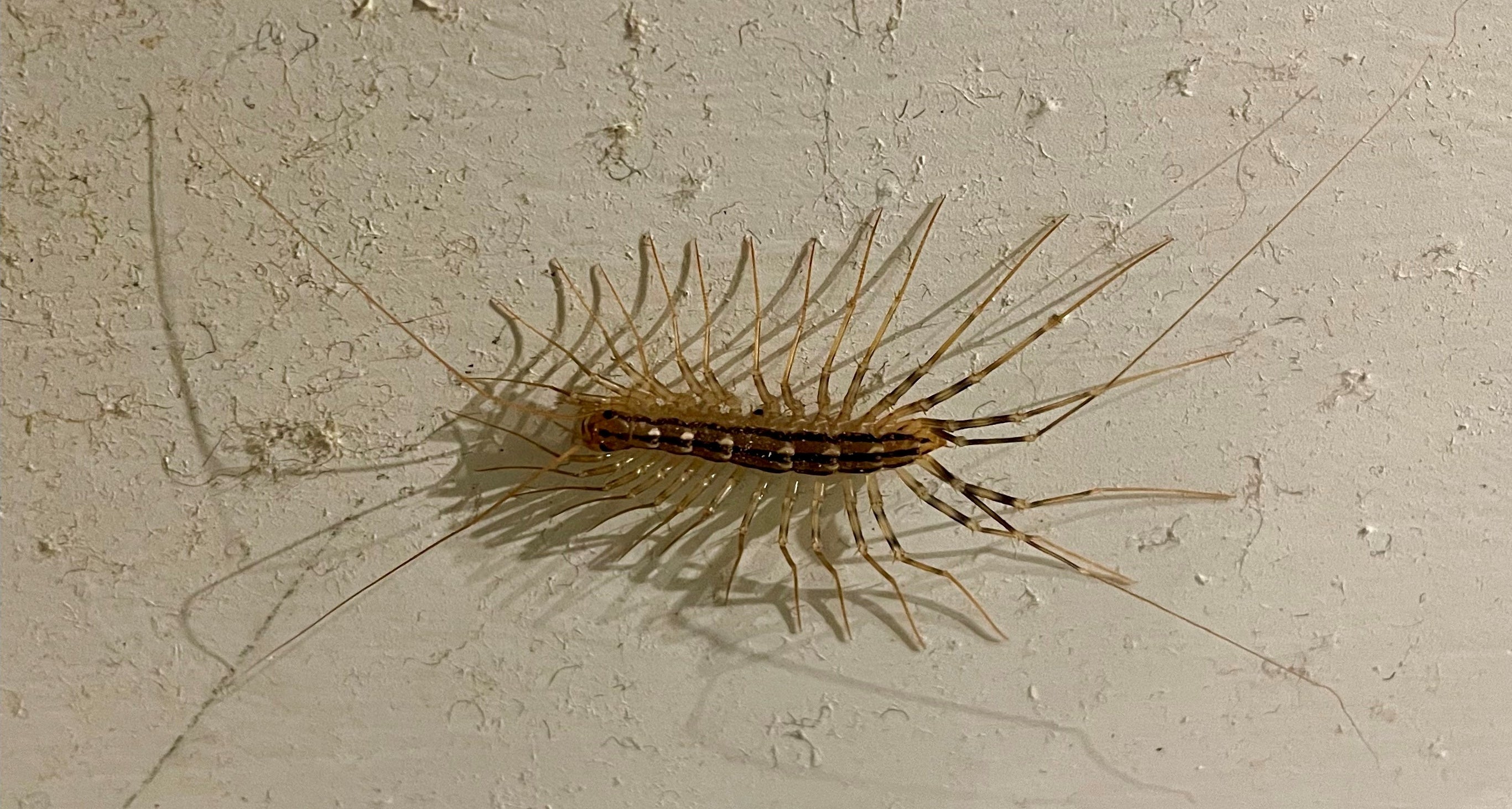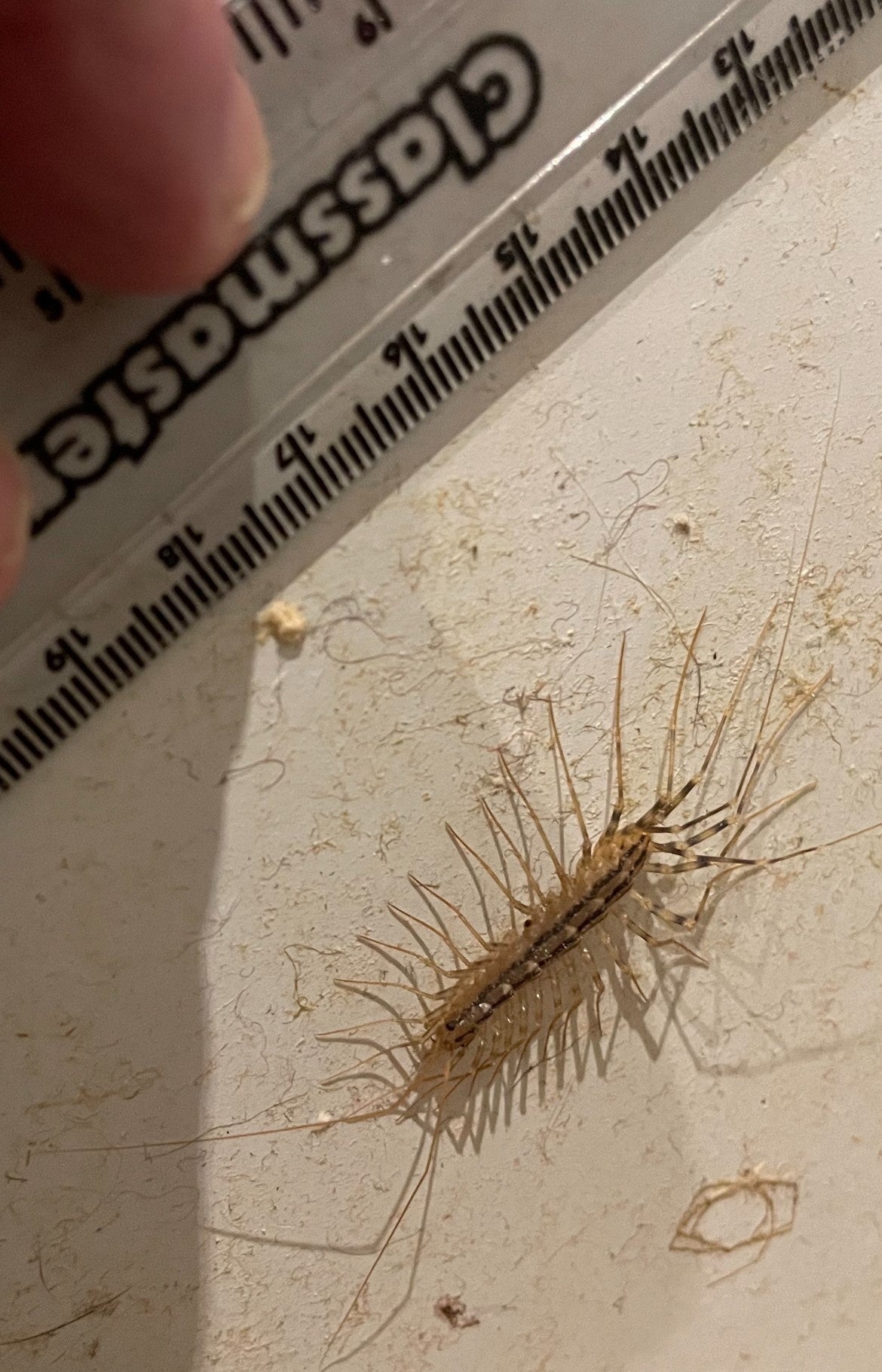Extremely rare venomous centipede found in UK toilet
University professor finds critter while cleaning his toilet in Nottinghamshire

Your support helps us to tell the story
From reproductive rights to climate change to Big Tech, The Independent is on the ground when the story is developing. Whether it's investigating the financials of Elon Musk's pro-Trump PAC or producing our latest documentary, 'The A Word', which shines a light on the American women fighting for reproductive rights, we know how important it is to parse out the facts from the messaging.
At such a critical moment in US history, we need reporters on the ground. Your donation allows us to keep sending journalists to speak to both sides of the story.
The Independent is trusted by Americans across the entire political spectrum. And unlike many other quality news outlets, we choose not to lock Americans out of our reporting and analysis with paywalls. We believe quality journalism should be available to everyone, paid for by those who can afford it.
Your support makes all the difference.A university professor was shocked to find an extremely rare venomous centipede in his toilet.
Dr Richard Jones was cleaning when he spotted the mini-monster at his home in Upton, near Newark-on-Trent, Nottinghamshire.
The history associate professor managed to take pictures of the centipede after he stumbled across it on 11 January.
He emailed the photos to experts and the British Myriapod and Isopod Group confirmed it was a scutigera coleoptrata - a species rarely seen in the UK.
Commonly known as the House Centipede, their bite is non-fatal to humans and is similar to a bee sting.
They have large bulbous eyes and long legs making it the fastest-moving centipede in the world.
It uses its front legs to lasso its prey and inject them with venom using its fangs.
The species is indigenous to the Mediterranean and has spread through Europe, Asia, North America and Australia.

Despite this, it remains extremely rare in the UK and there have been fewer than 50 confirmed sightings since 1883.
However, that number is rising with 10 new verified sightings of the distinctive bug last year.
Dr Jones, Associate Professor of Landscape History in the Centre for Regional and Local History at Leicester University said the sighting has been added to the UK Centre for Ecology and Hydrology’s national database.

He said: "I really encourage people to keep an eye out for the unusual and report their findings.
"There are some brilliant experts out there willing to help and confirm identifications.
"Encounters such as this are a reminder that we should expect the unexpected as the world warms.
“This centipede has brought that home to me, literally."
Dr Jones said the centipede remains “at large” at his home where he is taking the opportunity to study its behaviour.
The House Centipede was the fastest-moving centipede in the world and a predator of arachnids.
It is indigenous to the Mediterranean but is extremely rare in the UK where there have been fewer than 50 confirmed sightings since 1883.
Join our commenting forum
Join thought-provoking conversations, follow other Independent readers and see their replies
Comments